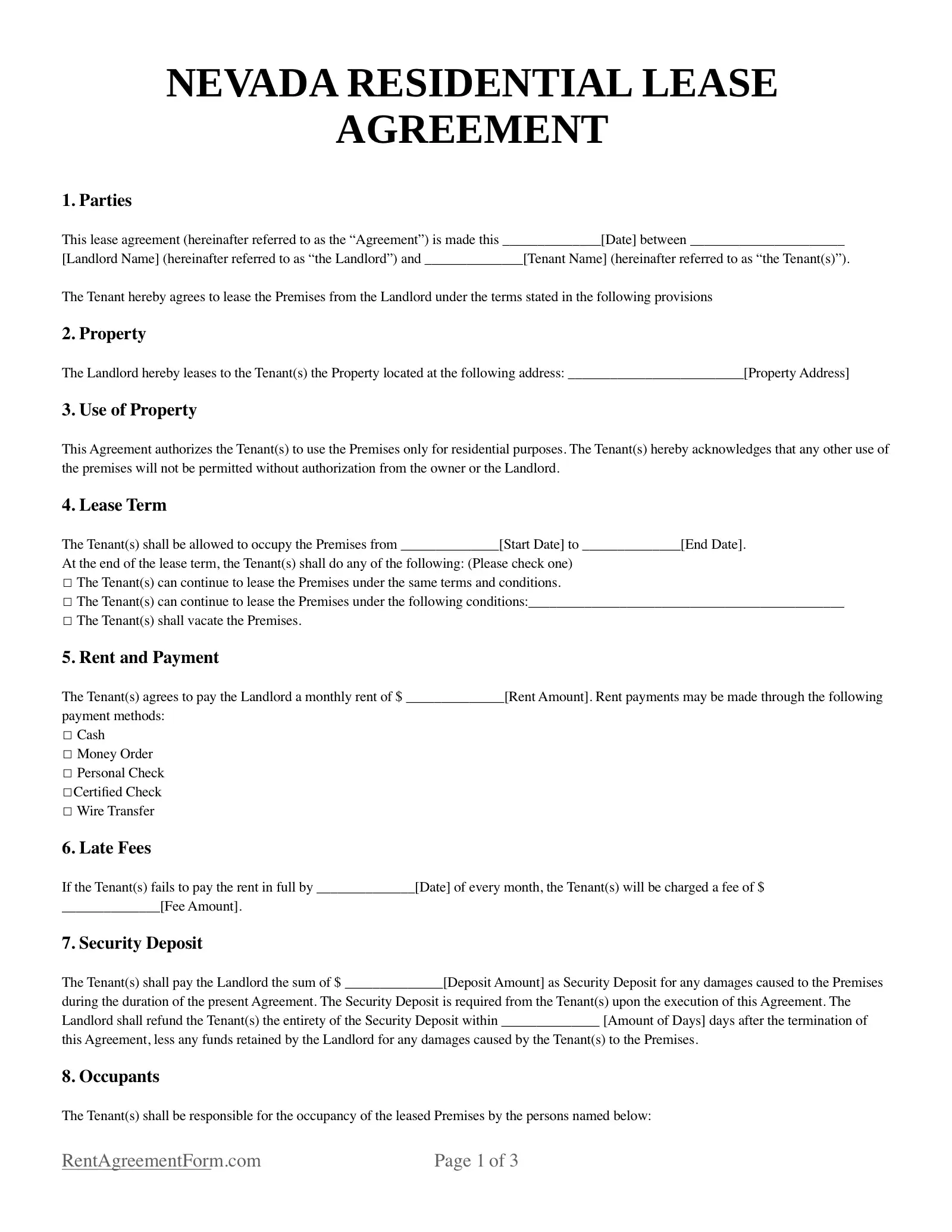Nevada Residential Lease Agreement Form
If you feel like living in a place where recreational activities are just a few minutes' drive away, then Nevada is the place to be. In addition to its desert landscapes and vibrant nightlife, Nevada is also a state with ample work opportunities. So, if you are eyeing a rental property, unit, or room in Nevada, you must know about the residential lease agreement form.
A lease is an agreement between a landlord and tenant regarding the use of real estate over a certain period. There are available fillable lease agreement forms for the convenience of both parties.
The document must contain the personal details of the landlord and tenant as well as their duties and responsibilities regarding the property. The landlord must ensure that the property can be safely and comfortably inhabited, while the tenant must provide assurance that the property will be in good hands.
However, before the residential agreement form is discussed, the prospective tenant must submit a Nevada rental application form to signify their interest in the property. Experienced realtors can help you with the process of submitting the application and the non-refundable fee. Once approved, you can discuss what to include in the lease agreement form.
The lease agreement must specify the number of occupants, rent amount, monthly due date, and the details of the security deposit.

Required Disclosures for Nevada Residential Lease Agreements
Every state has a set of required disclosures for landlords. The following are the mandatory disclosures for Nevada:
- Lead-Based Paint Disclosure - It is a federal law that landlords should disclose if the property was constructed before 1978. Along with the information, the landlord must also provide tenants with educational materials about the dangers of lead-based paint (Residential Lead-Based Paint Hazard Reduction Act of 1992 § 1018).
- Move-in Checklist - The landlord must provide the tenant with a checklist that enumerates the conditions of the property before the tenant moves in. The account must be signed by both parties (NRS 118A: Landlord and Tenant: Dwellings).
- Nuisance Penalty - A Nevada landlord must also disclose the rules and regulations within a property, including how nuisances and violations will be reported to government authorities (NRS 118A.515).
- Right to Raise Flag - The tenant has the right to raise the United States flag if they wish but only within the area where they have exclusive rights as a tenant. The landlord must inform the tenant of this guideline (NRS 118A.325).
- Foreclosure - The Nevada landlord must also inform the tenant if the property is subject to foreclosure proceedings (NRS 118A.275).
Security Deposits in Nevada
A Nevada landlord can collect as much as three months’ worth of rent as a security deposit. At the end of the tenancy, the amount can be used to repair damages to the property that were incurred during their lease. The move-in checklist will be handy at this stage because identifying damage will be simple.
The landlord has 30 days to return the security deposit or its balance to the tenant since the amount is refundable unless there was an early termination of the tenancy (NRS 118A.242).